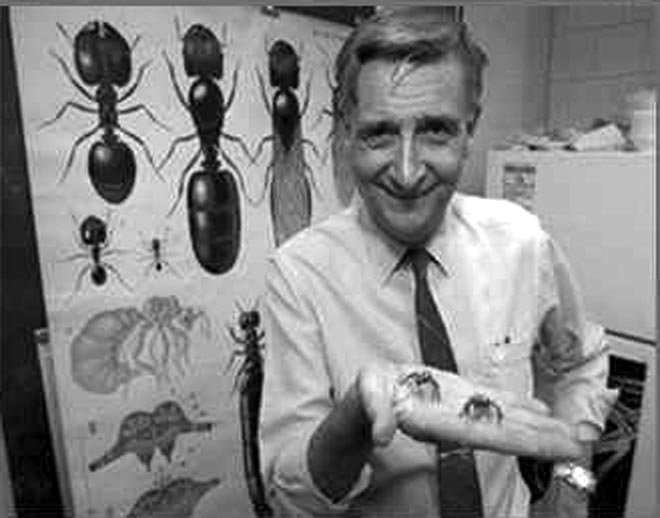Edward Osborne Wilson, more commonly known as E. O. Wilson, was an American biologist who is widely considered to be the world’s leading authority on ants. One of the leading figures in sociobiology, he is often dubbed as “the father of sociobiology”.

A notable author and researcher, Wilson won the Pulitzer Prize twice. He is also noted for his environmental advocacy, and his secular-humanist and deist ideas related to religious and ethical subjects.
Born in 1929 in Alabama, E. O. Wilson showed an interest in science from an early age. He always hoped to become a biologist. Wilson received his BS and MS degrees from the University of Alabama.
Wilson earned his doctorate in biology from Harvard University in 1955. He carried out various research studies and was awarded many prizes. He published his most controversial book, “Sociobiology: The New Synthesis” in 1975 that gained him countrywide acclaim and recognition. John Paul Scott had coined the term “sociobiology” during a conference on social behaviour and genetics. Wilson thoroughly discussed the evolutionary mechanics behind social behaviours in his book, for instance nurturance, aggression and altruism.
When Wilson started taking ants as his main focus of research, he generalized his conclusions to the behaviour of primates including human beings. This created much controversy and several scholoars rejected this view. In recent years, however, research done in Africa in the field of chimpanzees has established that he was not quite wrong.
E. O. Wilson has been harshly criticized by liberal thinkers as well as the members of the Psychology Division of Women in the American Psychological Association. The primary contentions are, however, emotional, and not empirical. Wilson did not try to state that human nature was purely inherited. Several of his detractors misinterpreted his claims.

